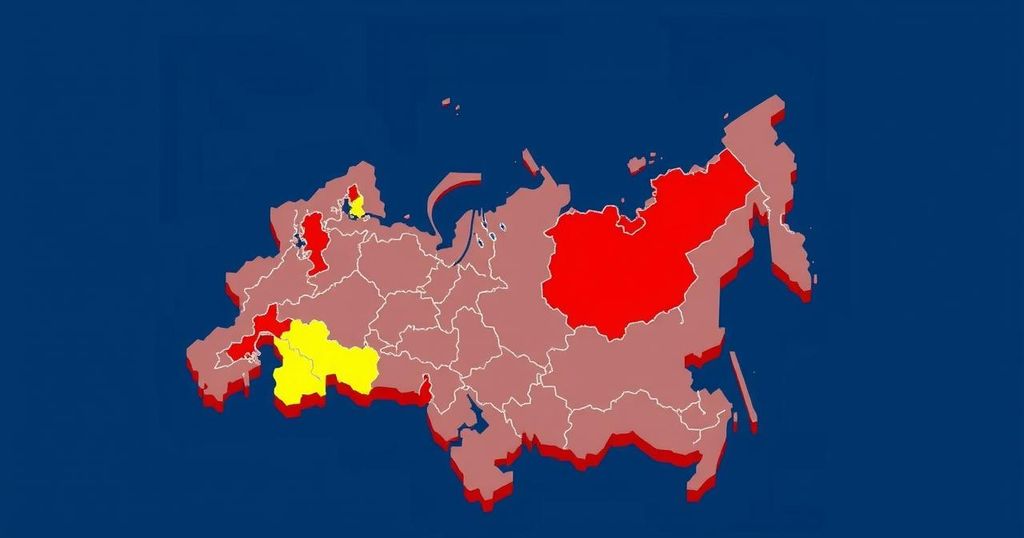Russia Denies Interference in Romanian Elections Amid Rising Tensions

Russia has denied interfering in Romania’s presidential elections, where pro-Russian candidate Calin Georgescu topped the initial round of voting, prompting accusations from Romanian officials. The European Commission has increased monitoring of social media amid concerns of potential Russian influence as Georgescu prepares to face centrist candidate Elena Lasconi in the upcoming second round.
On Thursday, Russia refuted claims of its interference in Romania’s presidential elections as the nation prepared for the second round of voting. Far-right candidate Calin Georgescu unexpectedly led the initial round, alarming NATO allies and triggering allegations of Russian meddling from Romanian officials. Maria Zakharova, spokesperson for the Russian foreign ministry, characterized these accusations as unfounded, remarking that the election campaign has been marred by an “unprecedented outburst of anti-Russian hysteria.” Meanwhile, the European Commission has intensified its scrutiny of TikTok amid concerns of potential Russian influence in the election, as Georgescu’s nationalist rhetoric has garnered significant attention on social media platforms. The upcoming second round will see Georgescu challenged by centrist mayor Elena Lasconi.
The political landscape in Romania is currently marked by tensions surrounding the potential influence of Russia in its electoral processes. As Romania prepares for its presidential elections, concerns have been raised about the emergence of pro-Russian sentiments, particularly with Calin Georgescu’s rise in popularity. His ascent has sparked discussions among European political circles regarding the integrity of democratic processes in Eastern Europe and the perceived tactics employed by Russia to sway political outcomes in neighboring countries. This context is vital to understanding both the accusations against Russia and the domestic political climate in Romania.
In summary, Russia has denied allegations of interference in Romania’s presidential elections, amidst fears about the impact of nationalism and pro-Russian sentiment in Eastern Europe. The situation is compounded by increased monitoring of social media platforms like TikTok, raising questions about external influences in democratic processes. As the election approaches, the scrutiny of these dynamics continues to be essential for both national and regional stability.
Original Source: www.themoscowtimes.com








